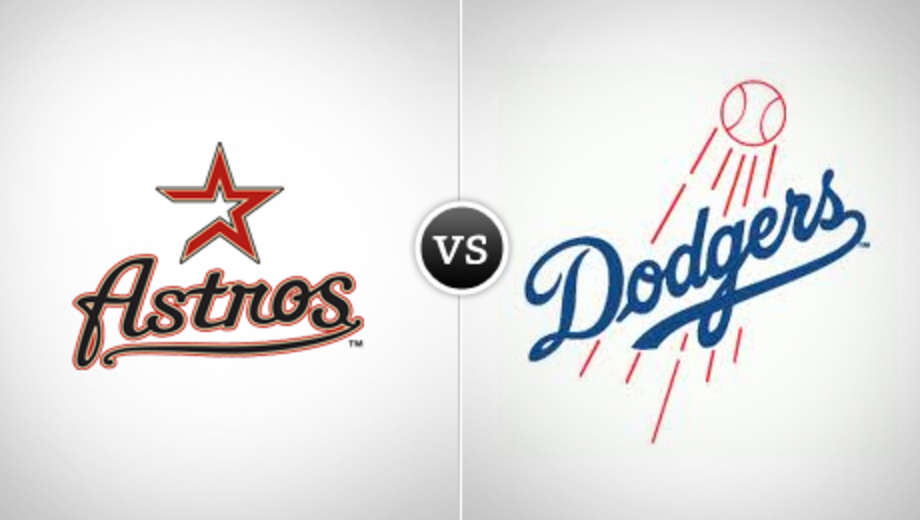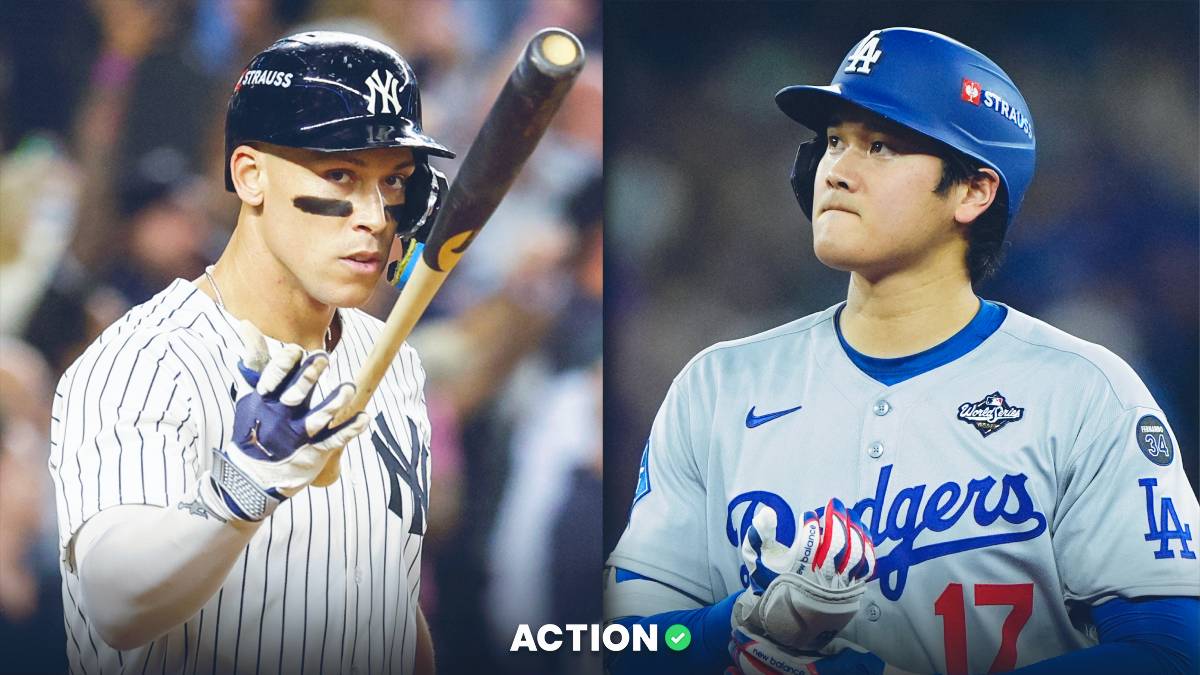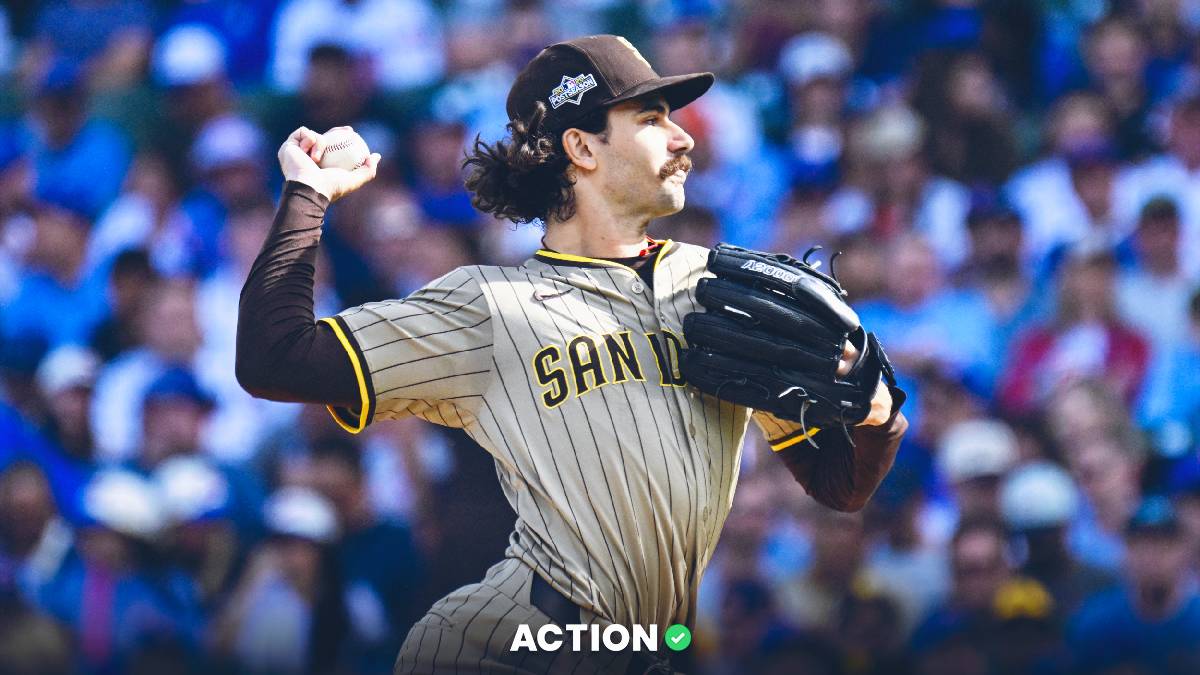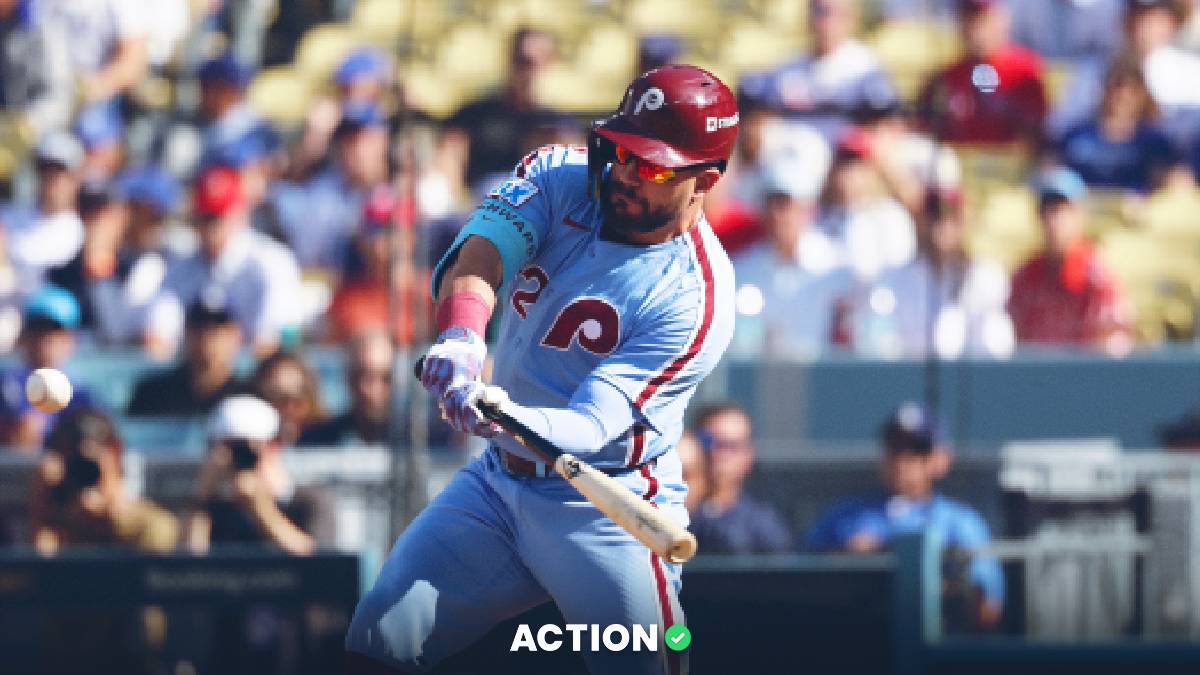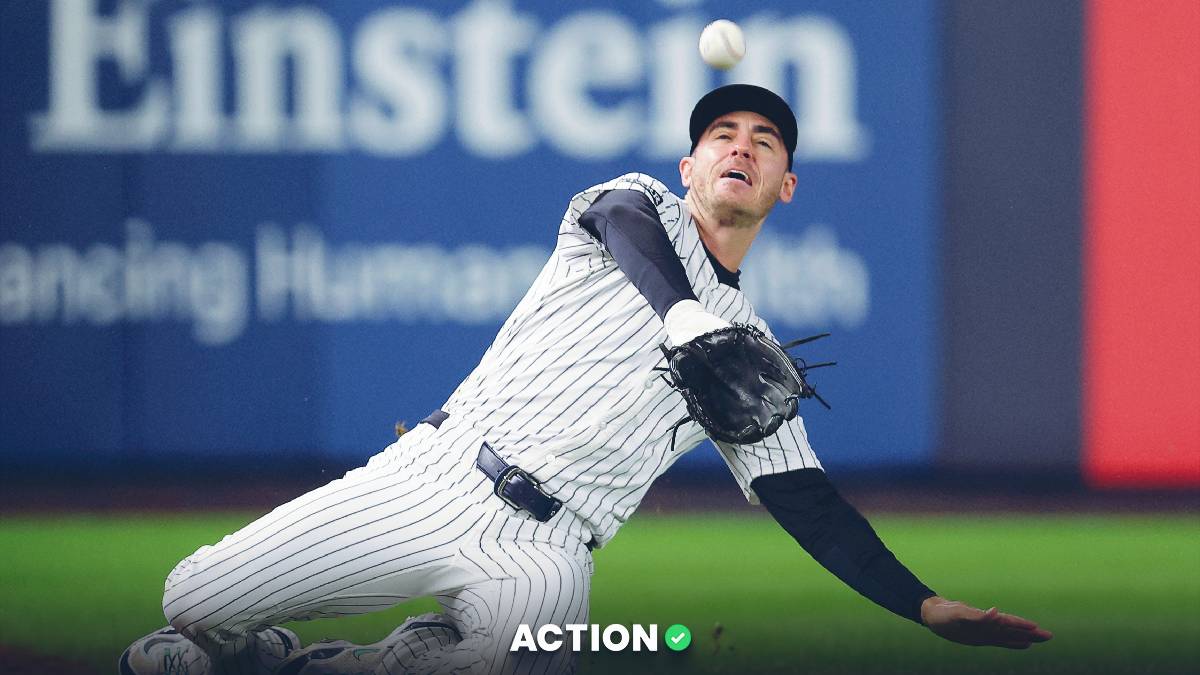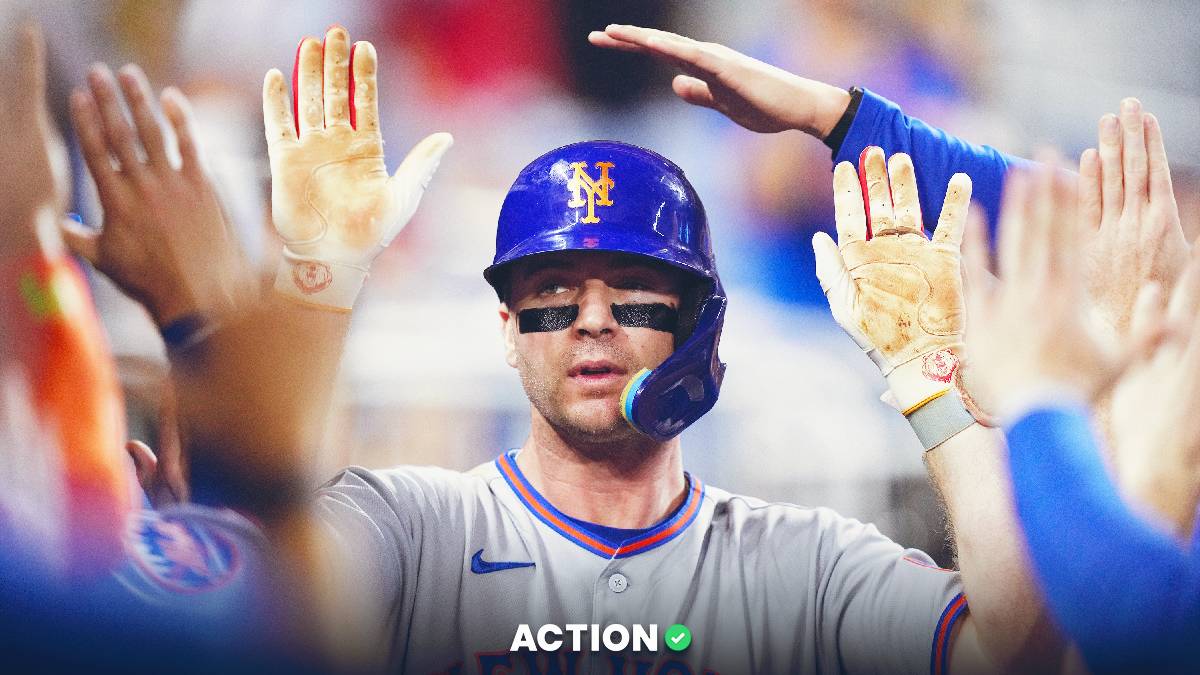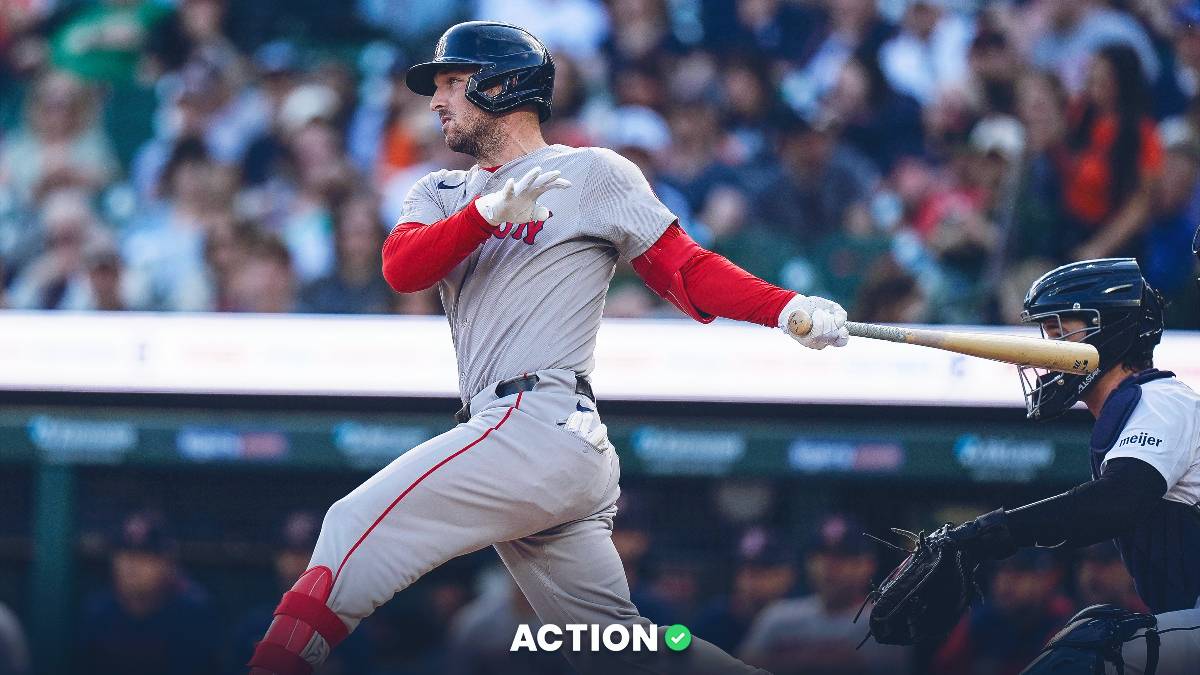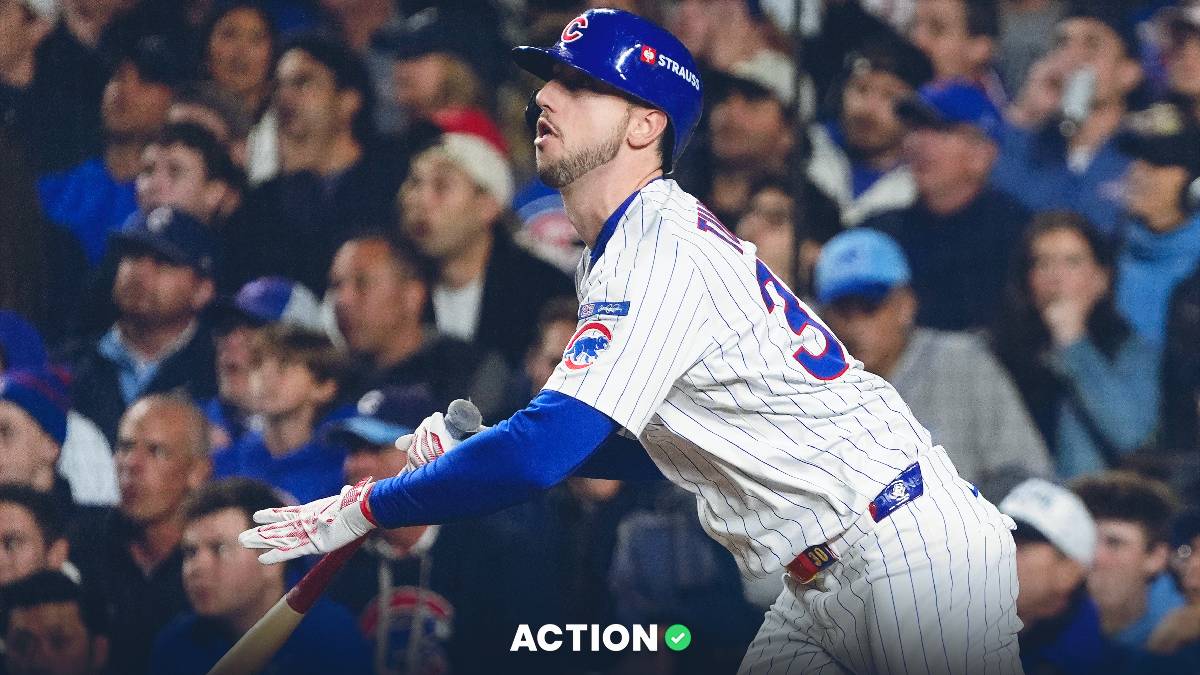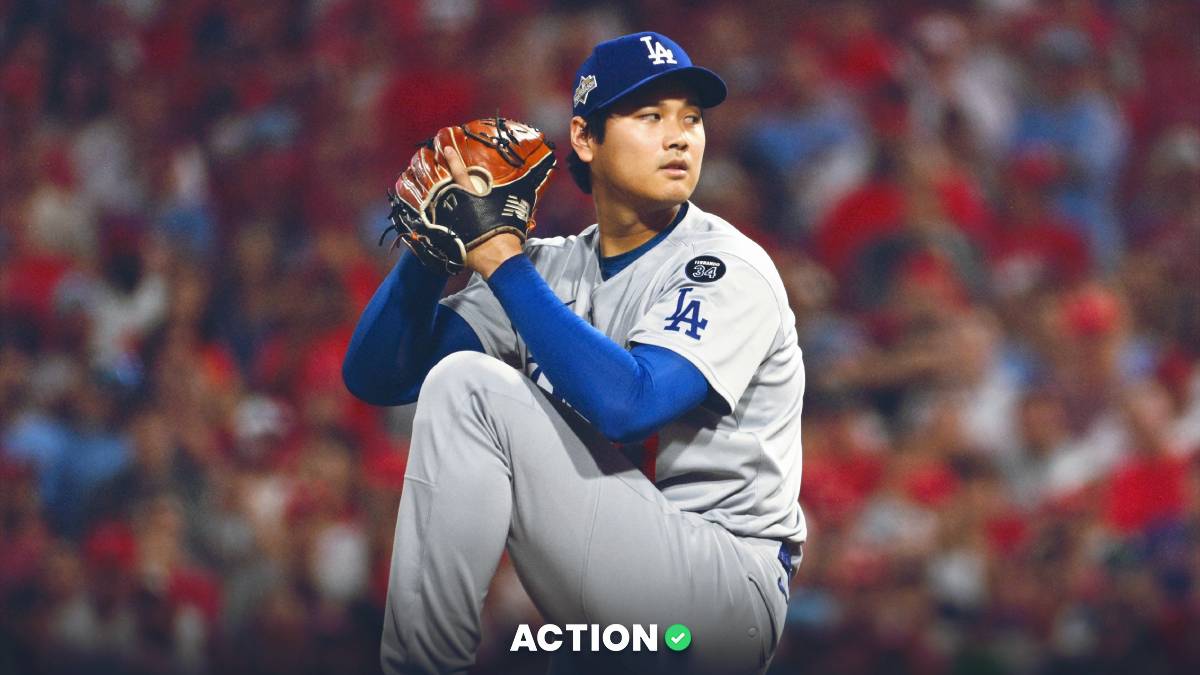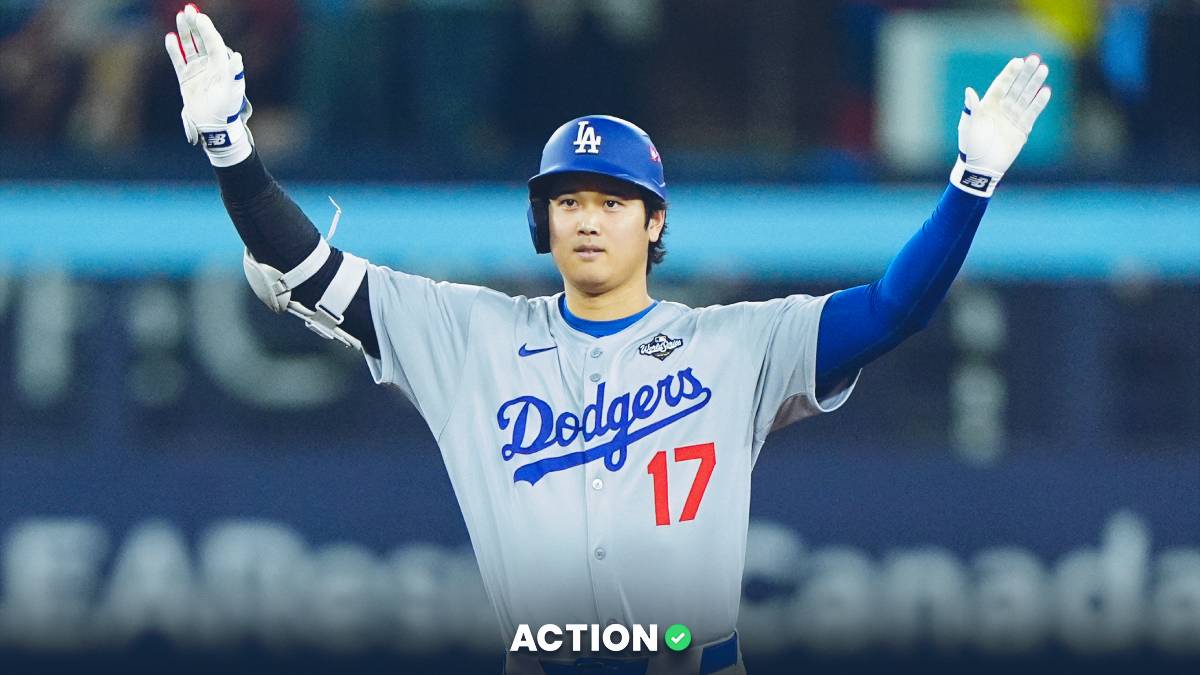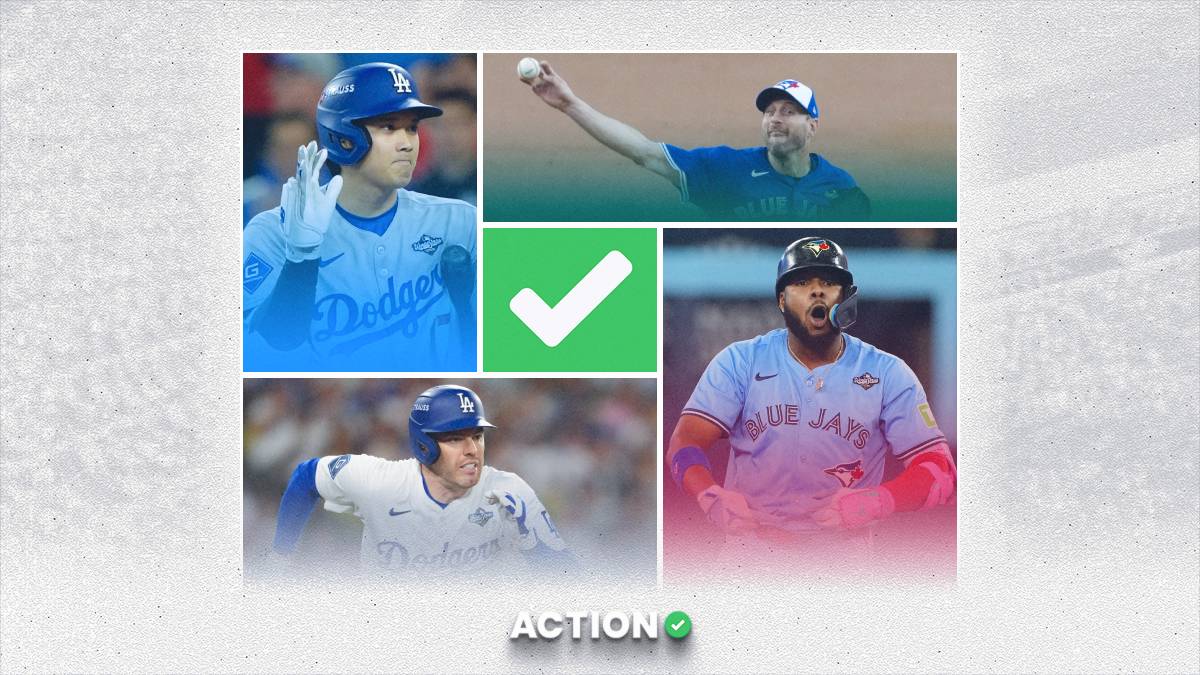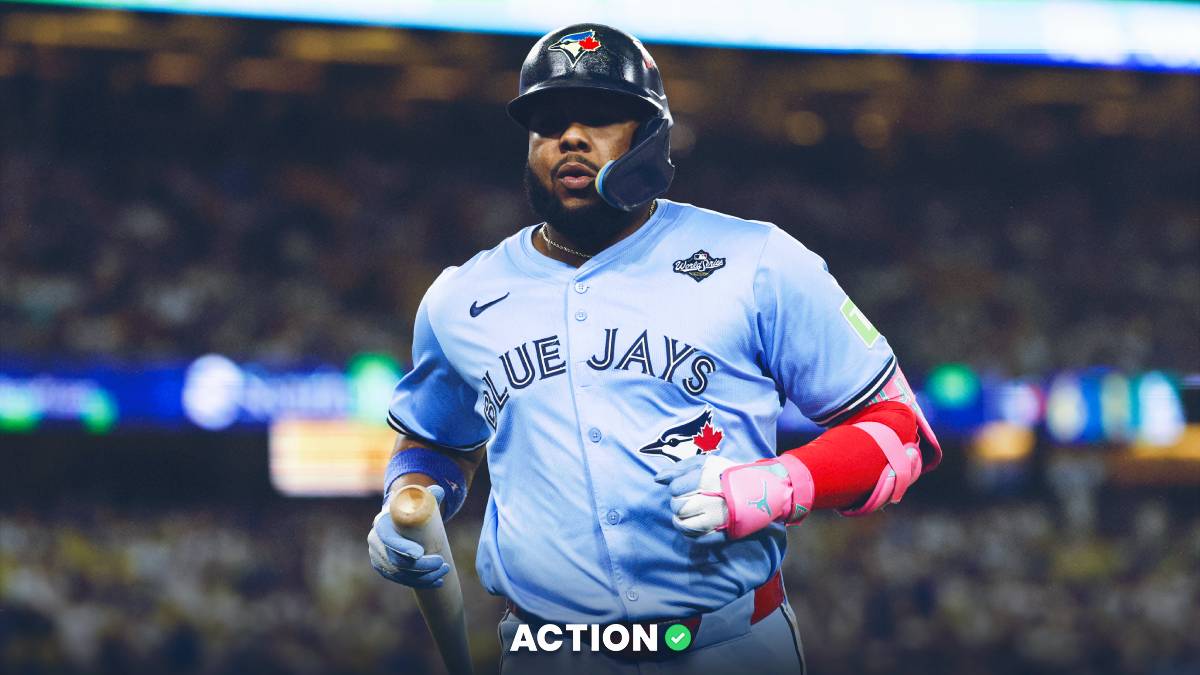If you look at the past three World Series matchups, the Dodgers and Astros will be the fifth and sixth different teams to play for all of the marbles. This is a stark contrast from other leagues, like the NBA, where the Warriors and Cavs have played for three consecutive titles. And, just in case you need any more proof about the unpredictability of baseball, consider this: Five years ago, in 2012, the five teams that finished with the WORST records in baseball (Cubs, Indians, Rockies, Twins, and Astros) all made the playoffs this season. One step further, the two teams who played for the World Series that year, the Giants and Tigers, finished with the two worst records in baseball this year.
Chasing History: The Astros are chasing their first World Series in franchise history, and the Dodgers are looking for their first since 1988.
Game 1: Tuesday in LA, 5:09 p.m. PT
Clayton Kershaw (2-0, 3.63) vs. Dallas Keuchel (2-1, 2.60)
Game 2: Wednesday in LA, 5:09 p.m.
Rich Hill (0-0, 3.00) vs. Justin Verlander (4-0, 1.46)
Game 3: Friday in Houston, 5:09 p.m.
Yu Darvish (2-0, 1.59) vs. Lance McCullers Jr. (0-0, 2.08)
Game 4: Saturday in Houston, 5:09 p.m.
Alex Wood (0-1, 5.79) vs. Charlie Morton (1-1, 6.23)
(if necessary)
Game 5: Oct. 29 in Houston, 5:16 p.m.
Clayton Kershaw vs. Dallas Keuchel
Game 6: Oct. 31 in LA, 5:09 p.m.
Rich Hill vs. Justin Verlander
Game 7: Nov. 1 in LA, 5:10 p.m.
Yu Darvish vs. Lance McCullers Jr.
Series Prices

Which team is better prepared?
These two teams enter this World Series by way of vastly different paths. The Dodgers — who are 7-1 this postseason — strut into the Fall Classic without breaking much of a sweat. Now, you could look at this two ways: On the one hand, it's a testament to their dominance; they outscored the defending champions by 20 runs in the NLCS. conversely, the Astros were actually outscored by the Yankees in the ALCS. But, on the other hand, there's something to be said about being "battle tested," especially as you approach November — when the stakes are higher.
The Astros, in contrast, have faced their fair share of adversity, including two elimination games — which they extinguished by way of dominant pitching — against arguably the hottest team this postseason, the Yankees. The Dodgers will surely be looking to close this thing out in five, if possible, to avoid facing Verlander a second time, as he has now thrown 24 consecutive scoreless innings in games his team is facing elimination. The only other pitcher to do that in MLB history? Yep, Madison Bumgarner, who won the World Series the year he did it.
Will home-field advantage play a factor?
As I pointed out in a previous piece, home field has not historically meant as much in MLB postseason as it does in other sports, but it does seem to matter slightly more in the later rounds. As we saw last round with the Astros and the Yankees, it certainly can play a large factor, and the home team managed to "hold serve" in every instance in the ALCS (home teams went 7-0).
Additionally, home field has actually played a major role in this year's results, in general, as home teams are 23-8 overall this postseason; the Dodgers and Astros are a combined 10-0 at home. The Dodgers, who won 104 games, will hold this advantage for the best of seven series over the Astros, who only won 101 games in 2017. But, keep in mind, if the Astros — behind the strength of their aces, Dallas Keuchel and Justin Verlander — manage to take one of the first two games in LA, they'll neutralize LA's home-field advantage in the process.
Aces in the hole
The Astros will actually have their two aces, Dallas Keuchel and Justin Verlander, on full rest for Games 1 and 2 to go up against Clayton Kershaw and Rich Hill. It is worth noting that Justin Verlander, the only starter in this series to pitch in a World Series, has gone 0-3 with a 7.2 ERA in three World Series starts. Also, Rich Hill has faced this Astros team twice before as a starter in 2016, allowing only three runs over 12 innings.
The Dodgers named Hill the Game 2/6 starter because of how dominant he has been at home all season (2.77 home ERA vs 4.06 road ERA). One of the biggest reasons home field means so much in this series is that the Astros presumably won't get to benefit from Keuchel's home dominance (2.26 home ERA v. 3.53 road era in 2017, career 36-21 2.94 home ERA vs. 28-31 with a 4.43 road ERA). Games 1 and 2 should both be extremely tight, and you couldn't go wrong arguing either way, so let’s look at the pivotal starter matchups for Games 3/4.
Darvish vs. McCullers
Yu Darvish has been outstanding in both of his playoff starts this season (11.1 innings, 2 runs, 14 K, 1 BB). In fact, Darvish is actually the one starter — on either side — that the other team has seen plenty of, since he spent most of his career in the same division as the Astros with the Rangers. In 14 career starts against the Astros, Darvish is 5-5 with a 3.44 ERA (1-1 in 2 starts with a 3.00 ERA this year). On top of that, he actually had a perfect game in 2013 ruined with two outs in the ninth by Marwin Gonzalez.
Yu Darvish will be starting on the road for Game 3 (so the Dodgers can have Rich Hill, who excels at home, pitch Game 2). Historically, Darvish has pitched well at Minute Maid Park, where he has compiled a 4-1 record over six starts with a 2.16 ERA and 0.74 WHIP. Current Astros hitters are a combined 31-157 against Darvish in their career, which is right around the Mendoza line (.197). Yu Darvish has also been outstanding on the road all season (5.25 home ERA vs 2.44 road ERA), so this should give Dodgers fans a lot of confidence with Darvish on the hill in Houston.
The Astros have to feel a lot better about their Game 3 starter after what Lance McCullers was able to do in the ALCS (10 innings, 1 run, 3 hits) after a long break. McCullers will feature a curveball (he threw 28 straight to close out the Yankees in Game 7), which he threw for 47 percent of his pitches this year (which was most in the MLB; second most, actually, was Rich Hill at 37 percent). The Dodgers are one of the most disciplined lineups in baseball, so they won’t be chasing curveballs out of the zone, which could mean this becomes a bullpen game, especially considering Lance hasn't thrown more than 85 pitches since July.
Wood vs. Morton
Charlie Morton has to come into this World Series with confidence after his Game 7 performance against the Yankees, but I doubt he will get the same zone he benefited from in that game (unfortunately for him). He got knocked around in his previous start, giving up seven earned runs over 3.2 against the Yanks in Game 3, however, so it's unclear which version of Morton we'll see when he toes the rubber for Game 4.
Alex Wood has only started one game in the postseason, Game 4 of the NLCS against the Cubs, the only game the Dodgers lost this postseason. He went just 4.2 innings, giving up three runs, but — at the same time — he only allowed four hits and had seven Ks (with no walks). Not a horrible line, by any means. Ultimately, Game 4 is a true toss up that could end up being another bullpen battle, which you’d have to say favors LA.
Who will win the battle of the bullpens?
Speaking of bullpens: Major advantage for the Dodgers, whose pen was close to unhittable against the Cubs, not allowing a run in 17 innings in the NLCS. Overall, the Dodgers' pen has only allowed three runs (0.94 ERA) in 28.2 innings over eight games these playoffs. In those games, they held opponents to a batting average of .125. Mind you, they did this against two of the better offenses in baseball (Cubs/Dbacks).
Kenley Jansen might be the best closer in the game, and Brandon Morrow is pitching like the best setup man in baseball, which is a problem for Houston. The Astros simply don’t have the class of arms in their pen to match the Dodgers at the end of games. Their pen also comes in lacking confidence after a very shaky postseason, including a 5.93 ERA against the Yankees in the ALCS. Ken Giles can throw 100 MPH, but he still hasn’t learned how to pitch, and leaves way too many sliders hanging in the zone, which you can not do against this Dodgers lineup.
Who has the stronger lineup?
You have to give the advantage to the Astros here, as they are one of the best statistically hitting teams of all time (according to some advanced metrics). Their lineup is deep and they do not have any splits weaknesses. Jose Altuve comes into this World Series as one of the hottest hitters we've seen in a while, and Carlos Correa following him up in that lineup must be a nightmare for opposing pitchers. The Astros have also received a huge lift from Yuli Gurriel for the better portion of this postseason, and complementary players like Marwin Gonzalez, Alex Bregman and even Brian McCann have contributed.
The Dodgers do possess one of the better lineups in baseball in their own right, but they're not as scary as the Astros. Justin Turner, aka "clutch gene," is a beast in the middle of that lineup; additionally, Yasiel Puig and Chris Taylor have been hot, but the Dodgers' lineup is simply not on the same level 1-8 (or 9) as the Astros'.
Defense wins championships?
The Dodgers were the best defensive team in the Majors as measured by park adjusted defensive efficiency per Baseball Prospectus. Conversely, the Astros finished 14th and are more vulnerable on defense with their lineup against lefty starters, which they will face throughout this series. Their defense vs. LHP was one of the reasons they had a worse winning percentage against southpaw starters in the regular season — despite the fact that their batting splits against righties and lefties are both similarly dominant.
Astros' catchers finished last in the Majors in caught stealing percentage. The Dodgers did not run much this season, but I expect Dave Roberts to have his team running more in this series, which could be the difference in a game or two. As we've seen in many close games before, entire tides can turn with one strategically placed steal. Surely, Dave Roberts knows all about this, himself.
Wild Cards
Dodgers:Corey Seager, who wasn’t even on the NLCS roster as he dealt with a back injury, will make his return to the Dodgers' lineup. The Dodgers could also play him at the DH spot for the games in Houston to give his back a rest in the field, but he will start at shortstop in Game 1. The Dodgers were able to spell Seager beautifully in the NLCS, but they couldn’t expect that production to continue. Will he be rusty or productive right away? His health is a major wild card, as back injuries are tricky.
Astros:Josh Reddick, who has been ghastly for most of this postseason. The Astros' lineup is so much more difficult to deal with when Reddick is hitting (productively) in the No. 2 spot, which he did all season (hit .313) and in the ALDS (hit .375). However, in the ALCS, he was 1-25 against the Yankees. Will Reddick continue his slide or turn it around?
In Summary…
Ultimately, I think the Dodgers' bullpen advantage will be most evident in Games 3 and 4. Because of the pitching matchups there, and how much will apparently hang in the balance, I have a feeling those games will end up being battles of the bullpens — with the manager handing the ball off to the "next guy up" as soon as starters encounter some trouble.
Personally, I think that Houston WILL take one of the first two games on the road, behind Keuchel or Verlander. And, once they do, I'll be more than happy to hit the Dodgers for the series, most likely at plus money, as I ultimately think they win the 2017 World Series for these reasons:
- Home-field Advantage
- Defense
- Favorable Dodgers Pitching Splits: Home Hill, Road Darvish, no Home Keuchel
- Darvish vs. McCullers Jr. Matchup
- Dodgers' patience at the plate; which leads into the last, but certainly not least advantage…
- BULLPEN!
BONUS Game 1 Tip

H/T: SportsInsights
I like the under 7 in Game 1 with Phil Cuzzi behind the plate. He is a known "under ump" with one of the widest zones in baseball. Out of the 75 MLB umpires that manned home plate at least 20 times in 2017, Phil Cuzzi had the 68th fewest walks per game (5.7). Since 2000, unders are 276-228 (55 percent) when Cuzzi is calling balls and strikes.
Additionally, both teams will have fresh pens with the wind blowing slightly in tonight.
Be part of the action
You can be a part of our growing community and also follow all of my plays for free by simply downloading the SportsAction App through the App Store or Google Play.


